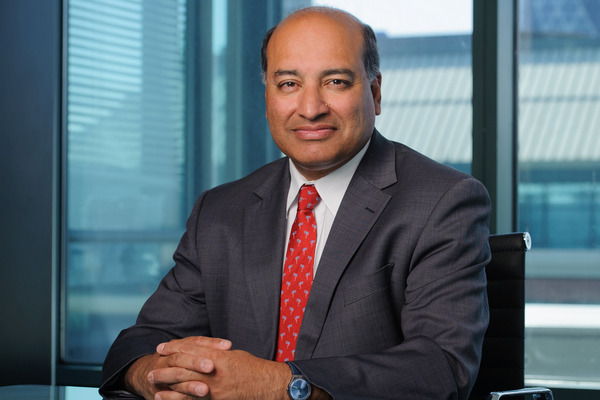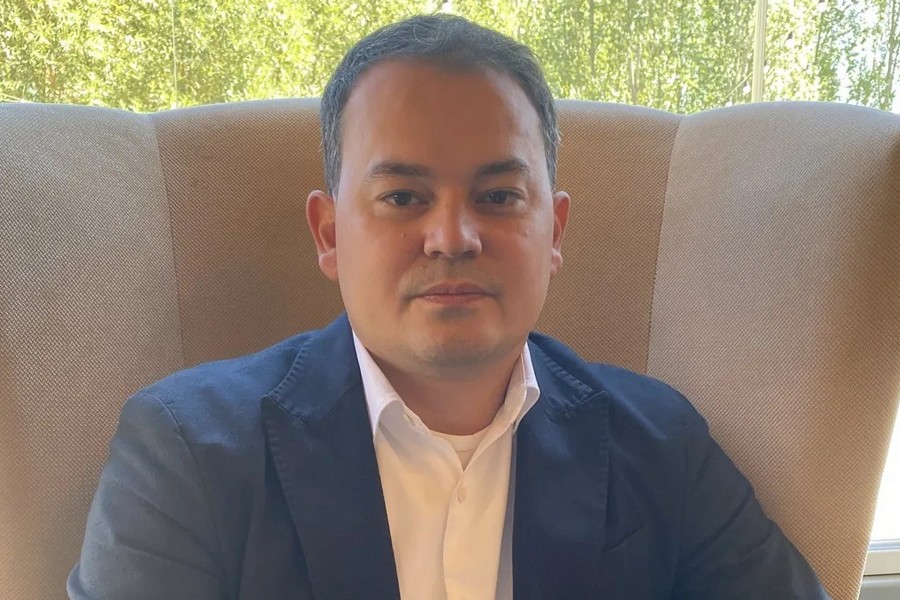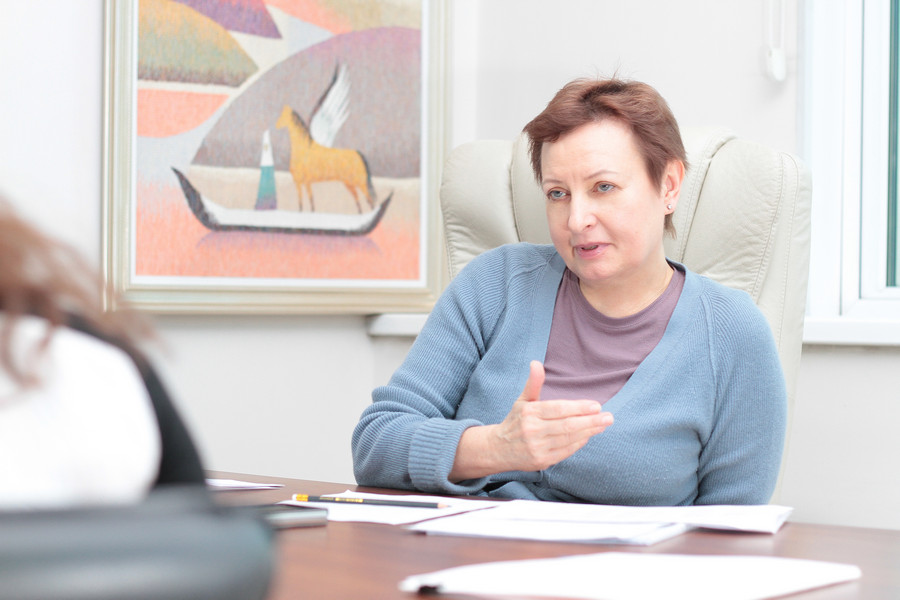EBRD President Suma CHAKRABARTI:
EBRD CONSIDERING PARTICIPATION IN KAZAKHTELECOM PRIVATIZATION

European Bank for Reconstruction and Development (EBRD) plans to wrap up by the end of 2018 the negotiations with the government of Kazakhstan about acquisition of an equity stake in Kazakhtelecom before the company’s IPO. EBRD is also considering financing the Saryarka gas pipeline and gas distribution stations, EBRD President Suma CHAKRABARTI, who arrived in Astana to participate in the meeting of the Foreign Investors Council, told Interfax-Kazakhstan in an interview
- EBRD actively invests in the economy of Kazakhstan and extends large loans both to the private and government sectors of the republic. Are there any restrictions or loan limits for Samruk-Kazyna? If yes, is there any possibility to overcome them?
- First of all, I am really glad to be back in Kazakhstan. It is always a pleasure to come here every year. It is one of the countries I have visited most. Obviously, the Foreign Investors Council is one of the reasons I have come here this time. The EBRD has already invested $8.7 billion and its total investment will be over $9 million by the end of this year easily. Last year we signed 25 new projects or another $700 million of investment in a range of sectors.
We have had a great successful start to 2018 as well. We would definitely like to invest more in Kazakhstan but you are right: one of the constraints has been what we call the single obligor limit with Samruk-Kazyna. However, there is a solution, which is privatization of Samruk-Kazyna’s companies. If such privatization is a success, EBRD could work with them using quite a different approach, which may include both debt financing and equity financing. Success with privatization will make Kazakhstan more attractive for investors and will allow EBRD to expand its portfolio in the private sector.
I think in particular the privatization of Kazakhtelecom, which we hope will take place in its more advance than some of the others. We would very much like to participate in that privatization, potentially taking a pre-privatization stake, equity stake, and maybe after as well. I think the importance of this is not just EBRD’s and Kazakhstan’s relationship. Kazakhstan does privatize some of the Samruk-Kazyna’s companies. It sends a very positive signal to foreign investors so that they will come into Kazakhstan with EBRD but maybe on their own as well.
Another example of this would be things like public-private partnerships (PPP) where the government is moving forward with the concession agreement on BAKAD (the Almaty Belt Highway Project). Again, that sends a very good signal to the foreign investment community and demonstrates Kazakhstan’s intent to do more PPPs as well. We will be a financier of BAKAD, that is for sure, but also, I hope, Almaty hospital PPP as well. [On June 5, 2018 EBRD and a subsidiary of the National Management Holding Company Baiterek signed an agreement for the financing of a hospital construction project in Almaty].
I just give those two examples for now because privatization and PPPs are the strongest market signals you could send to the wider world that Kazakhstan is open for business.
- Could you tell what size of privatization share in Kazakhtelecom EBRD is now considering?
- Of all the companies that are going to go private in Kazakhstan, we are most interested in Kazakhtelecom, for the negotiations concerning the participation in the capital of this company are in an advanced stage. It is still too early to talk about the size of the share that EBRD can buy or the cost of such share. The government plans to launch the privatization process at the end of this year and we will coordinate our joint actions accordingly. As a rule, EBRD becomes a minority shareholder in a company with a share of up to 35%.
- How long do you think the negotiations will take, considering the fact that Kazakhtelecom’s IPO is expected to take place at the end of this year?
- I think we will complete the negotiations in good time before the end of this year. I think it is in everyone’s interest, for the Kazakh government is trying to get this done because, as I said earlier, it will send a big signal.
- Is EBRD considering equity participation in any other companies of Samruk-Kazyna?
- I think there are other possibilities but Kazakhtelecom is the most likely one to happen, in which EBRD can definitely have a big interest. However, we are willing to discuss other options as well. More broadly, EBRD wants to take more equity in many other entities, including some which are already in the private sector, so that they may improve their performance and become more effective. In the future, we could provide debt finance to the privatized companies, too, as we did for Mangistau Power Distribution Company.
- Has EBRD made a decision about the financing of the Saryarka gas pipeline project?
- First of all, we are enormously supportive of the government’s gasification agenda. We are already engaged with the government on reform in this sector and we are considering investment in the Saryarka gas pipeline. We think it is a very important project. We are also considering other investments in the gas distribution lines in the largest cities as well.
We are now considering with the government of Kazakhstan the financial structure of the Saryarka project. No decision has been reached yet but we are obviously interested in working with Samruk-Kazyna or Baiterek as part of this. What we need for this project to go ahead with EBRD participation is particularly the question of gas tariff reform, methodology and the agenda of a privatization in the gas sector. We need those two things to be understood by us and by the government, and we also need a very clear understanding that the government needs us and wants us in this project.
- EBRD is the largest investor in the renewable energy sector of Kazakhstan. Do you plan any new investment in this sector in the future?
- Well, the dynamics start in 2018 that we mentioned includes two renewable projects: Urbasolar for $8.8 million [this the project of France’s Urbasolar SAS for construction of a solar power plant in the South Kazakhstan region] and Baikonur solar project for $30 million [for construction of a solar power plant in the Kyzylorda region]. Basically, we want to do much more in renewables to help Kazakhstan achieve its targets that were announced in Paris at the Climate Change Summit back in November 2015. Because of the progress that has been made within the renewable energy framework in Kazakhstan, we think there are some real examples of potential projects that we can finance going forward. We are the world’s number one multilateral financial institution financing in the “green” economy area. We hit our target of 2020 three years early and 43% of our investments were in the “green” economy last year. Kazakhstan was one of the countries where we did particularly well but with more room to do more.
- What do you think of Kazakhstan’s plans to increase the share of renewable energy to 42% of the total energy generation by 2050?
- I think it is realistic. I see good signs of that. First, it is a long-term ambition over next 30 years and it requires a very consistent long-term policy framework, regulatory framework for the renewable sector. Where investment in renewable has really worked has been in countries which have adopted that long-term framework. Where it has not worked is where countries have changed their minds after a few years, and that has made it difficult for investors really to keep investing in renewables. Kazakhstan has a track record of keeping its word. So, I am pretty confident the framework will actually stick for the long term. And that is going to be very important.
The second thing any country needs is the right weather. You cannot really progress unless you have the sun and wind and, for example, Kazakhstan has that. Generally, in Central Asia there is a need for changing energy mix, and the weather conditions here and in other countries in Central Asia should allow that, but that’s obviously fundamental. So yes, the weather makes it very helpful here.
The third reason for me being confident about it is that technology is becoming more and more advanced, and therefore prices are also coming down in this sector. This means it becomes easier for governments to not to have to subsidize. Therefore, it is much easier to adopt these technologies than it was, say, five or ten years ago.
- What do you think of Kazakhstan’s chances of attracting “green” bonds?
- I think such chances are good. I think Kazakhstan is one of the most go-ahead countries in terms of the “green” bond area. I think that the Astana International Financial Center has been very much pushing this with our help. So, I am very optimistic, actually, on “green” bonds in Kazakhstan.
We are currently working on that framework for the financial institutions across the region, so that they could issue “green” bonds and comply with those principles. I think Kazakhstan will be one of the first countries where such framework will be applied.
In Kazakhstan, we are working on several specific “green” bond issuances with the respective authorities. It will take some time to develop them but we are very hopeful that “green” bonds will be issued in the foreseeable future.
- Thank you for your time!
June, 2018
© 2025 Interfax-Kazakhstan news agency
Copying and use of these materials without reference to the source is prohibited
Archive






